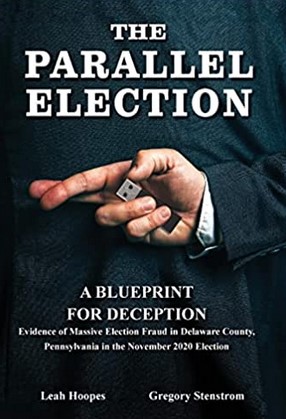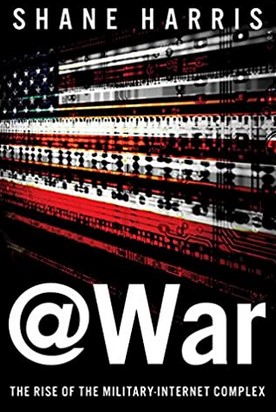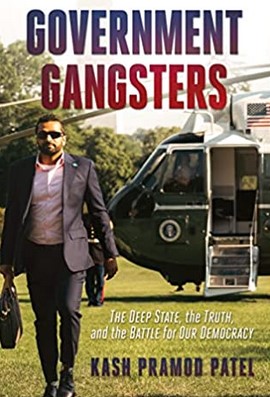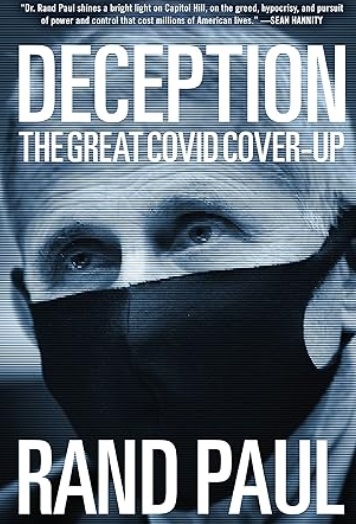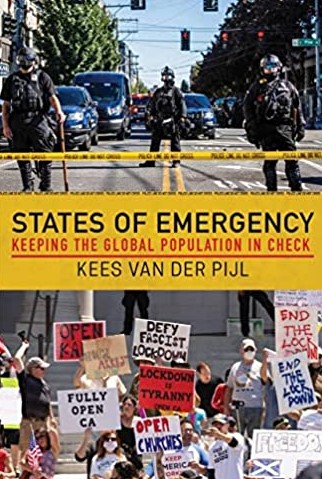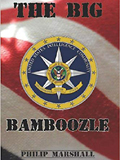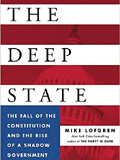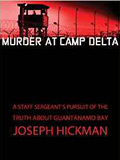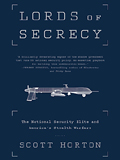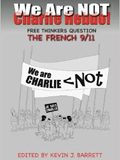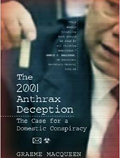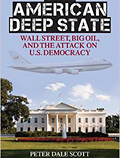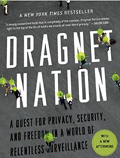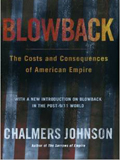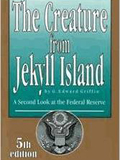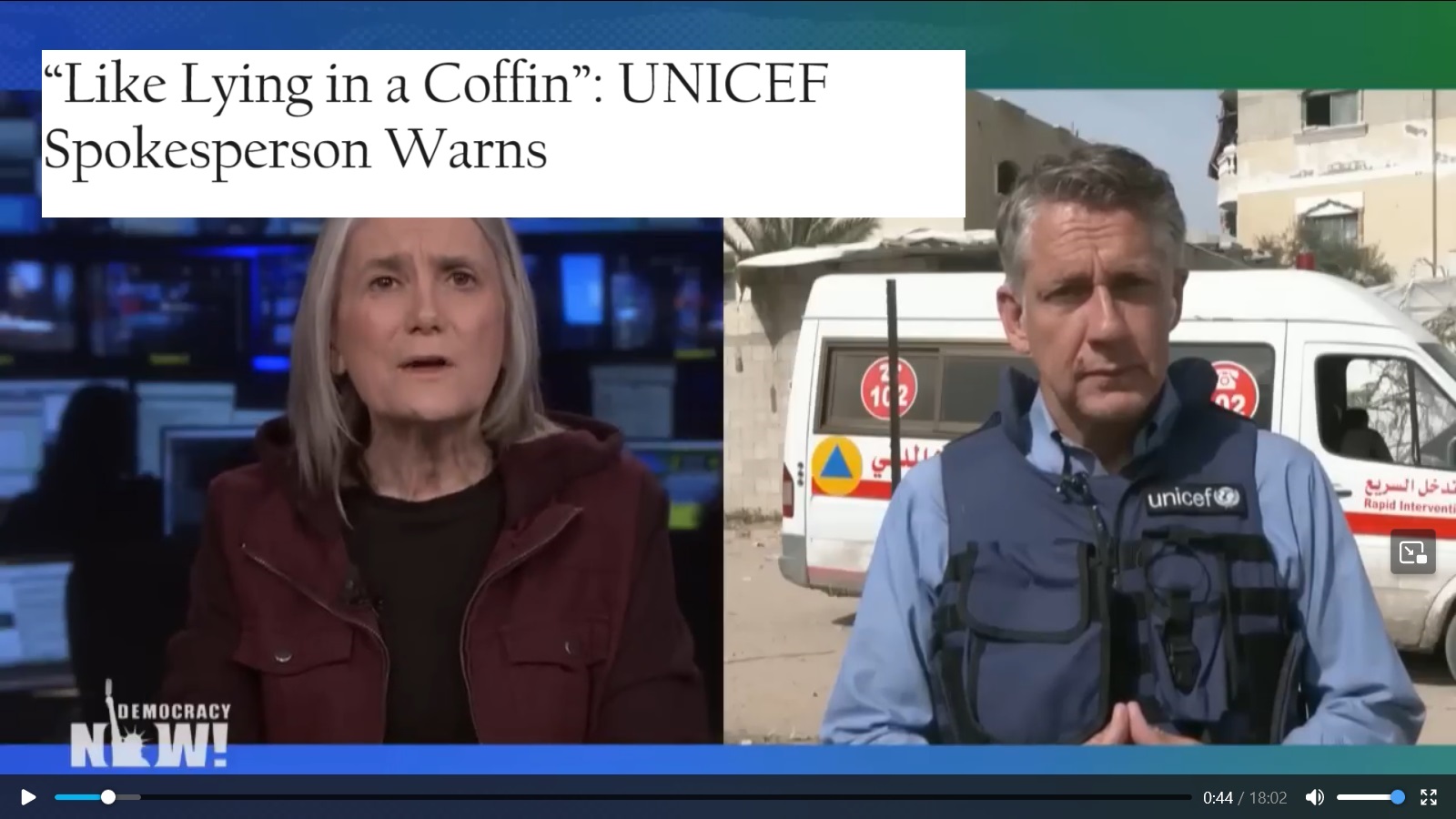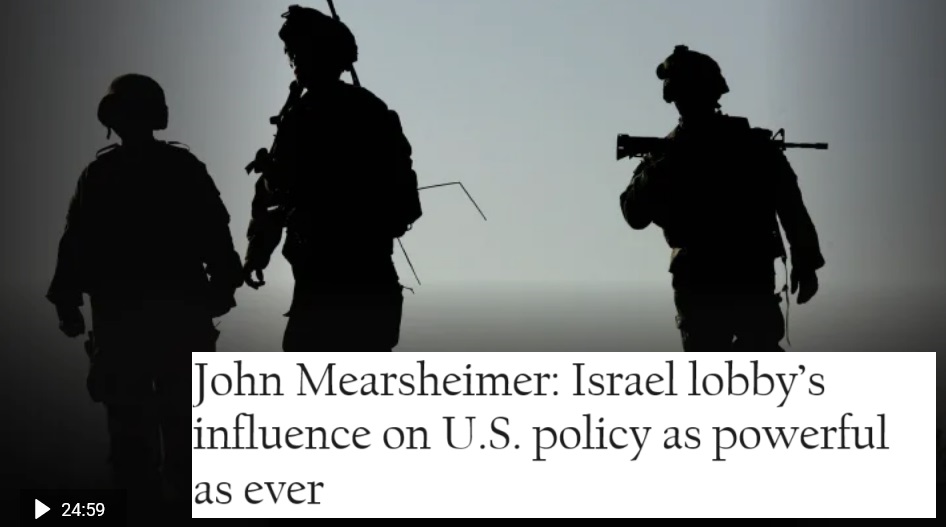FDA Acknowledges Gaps in Food Safety
 Thursday, March 13, 2008 at 12:53PM
Thursday, March 13, 2008 at 12:53PM  Since 2001, nearly half of all federal inspections of facilities that package fresh spinach revealed serious sanitary problems, but the Food and Drug Administration did not take "meaningful" enforcement action, a House committee report released yesterday found.
Since 2001, nearly half of all federal inspections of facilities that package fresh spinach revealed serious sanitary problems, but the Food and Drug Administration did not take "meaningful" enforcement action, a House committee report released yesterday found.
The most common problems uncovered by FDA inspections of 67 facilities included inadequate restroom sanitation, litter piles and indoor condensation posing a risk of food contamination by microorganisms. Inspectors also found buildings vulnerable to rodent infestation and workers with uncovered hair and poor hygiene.
Twenty serious outbreaks of E. coli have been traced to fresh lettuce or spinach since 1995. One of the most troublesome was a 2006 outbreak in bagged spinach processed by California-based Natural Selection Foods that sickened more than 200 people and was linked to three deaths.
The FDA acknowledged gaps in its food safety efforts after that episode. But the report by the House Oversight and Government Reform Committee says the problems were worse: It showed that spinach facilities were inspected about once every 2.4 years despite federal guidelines that say most should have been visited at least annually.
NRCC Treasurer Under Scrutiny
 Thursday, March 13, 2008 at 12:35PM
Thursday, March 13, 2008 at 12:35PM In the tiny world of people who keep the books for Washington's multitude of political committees, Christopher J. Ward was considered the Republican "gold standard," in the words of a former co-worker -- one of the few people with so much expertise in election law that everyone wanted Ward's services.
The quiet workaholic is listed as treasurer for 83 GOP fundraising committees over the past eight years, according to Federal Election Commission records. In the past five years alone, he oversaw the accounting for committees that raised more than $400 million, $368 million of it at the National Republican Congressional Committee, according to a Washington Post review of those records.
But in late January, Ward, 39, was dismissed as the NRCC announced that it had found financial "irregularities" that "may include fraud." The FBI is investigating what appears to be "a significant amount of money" missing from the House Republican fundraising arm, according to a law enforcement official.
Now the dozens of GOP lawmakers who had clamored for Ward's help are apprehensively poring over his work along with FBI investigators, trying to learn more about the finances he oversaw. Several lawmakers have told Rep. K. Michael Conaway (Tex.), head of the NRCC's auditing subcommittee, that they think money may be missing from their political committees, as well.
D.C. Police Initiate House to House Search for Guns!
 Thursday, March 13, 2008 at 12:21PM
Thursday, March 13, 2008 at 12:21PM The Metropolitan Police Department yesterday(3-12-08) announced a new crime initiative that will include officers going into high-crime neighborhoods to search homes for illegal guns.
"The premise is that residents can have the trust of the ...department," said police spokeswoman Traci Hughes.
Chief Cathy L. Lanier announced the program and said it focuses on parents or legal guardians who think their children have a gun in the house and are uncomfortable with searching for it themselves.
Miss Hughes said that residents would be given amnesty for illegal guns found in homes after they are tested for links to crimes. But she said police would investigate the source of the guns if they were found to be involved in a crime.
She said another primary intent of the initiative is to get guns away from young people, particularly those in small street gangs called crews, who get them for protection or to attack rivals.
D.C. Council member Phil Mendelson, chairman of the council's public safety committee, said the search program "could be touch-and-go" and its success will hinge on how officers execute the requests.
Israel and Gaza Trade Fire
 Thursday, March 13, 2008 at 11:45AM
Thursday, March 13, 2008 at 11:45AM Sixteen rockets were fired at Israel from Gaza on Thursday, and the Israeli Air Force carried out its first strike in Gaza for nearly a week, hitting a rocket launcher, the Israeli Army said.
The upsurge in violence follows the killing by Israeli undercover troops of four Palestinian militants in the West Bank city of Bethlehem on Wednesday, which shattered a five-day lull in hostilities and threatens Egyptian efforts to mediate a cease-fire.
Two of the rockets fired into Israel fell in the border town of Sderot, hitting a shed in the yard of a house and a soccer field.
The Israeli air force strike hit a rocket launcher that was ready to fire a rocket in northern Gaza at 3 a.m., but nobody was wounded, according to an army spokeswoman. It was the first Israeli strike in Gaza since last Friday night.
Among the four Palestinian militants who were killed Wednesday were two men, both in their 40s, who had been wanted by the Israelis for years:
Bush Warns House on Surveillance
 Thursday, March 13, 2008 at 11:29AM
Thursday, March 13, 2008 at 11:29AM  With the House poised to vote today on electronic surveillance legislation that the White House has said falls far short of its requirements, President Bush warned legislators strongly Thursday morning against passing what he called “a partisan bill that will undermine American security.”
With the House poised to vote today on electronic surveillance legislation that the White House has said falls far short of its requirements, President Bush warned legislators strongly Thursday morning against passing what he called “a partisan bill that will undermine American security.”
In clear defiance of the White House, the proposal from House Democratic leaders would not give retroactive legal protection to the phone companies that helped in the National Security Agency program of warrantless wiretapping. Mr. Bush also threatened to veto any such measure, should it reach his desk.
The Senate last month passed a bill that did provide such protection and also broadened government eavesdropping powers.
Using tough language on a subject on which he has been persistent and unswerving, Mr. Bush warned House members that “they should not leave for Easter recess without getting the Senate bill to my desk.”
The Senate last month passed a bill that did provide such protection and also broadened government eavesdropping powers.
U.S. Home Foreclosures Rise 60% in February & Bank Repossessions Doubled
 Thursday, March 13, 2008 at 09:25AM
Thursday, March 13, 2008 at 09:25AM U.S. home foreclosure filings jumped 60 percent and bank repossessions more than doubled in February as rates on adjustable mortgages rose and property owners were unable to sell or refinance amid falling prices.
More than 223,000 properties were in some stage of default, or 1 in every 557 U.S. households, Irvine, California-based RealtyTrac Inc. said today in a statement. Nevada, California and Florida recorded the highest state foreclosure rates.
``We're in a vicious cycle,'' said Rick Sharga, executive vice president of RealtyTrac, a seller of foreclosure data. ``We've got depreciating home values and loans resetting at an outstanding volume just as banks are retrenching. Even people who want to buy a home now are having trouble getting a mortgage.''
About $460 billion of adjustable-rate mortgages are scheduled to reset this year and another $420 billion will rise in 2011, according to New York-based analysts at Citigroup Inc. Homeowners faced higher payments as fourth-quarter home prices fell 8.9 percent, the biggest drop in 20 years as measured by the S&P/Case-Shiller home price index.
Filings are likely to be ``explosive'' in May and June as more payments jump, after remaining at current levels this month and next, Sharga said in an interview. There may be between 750,000 and 1 million bank repossessions in 2008, he said. Bank seizures rose 110 percent in February from a year ago, he said.
Gold Rises to $1,000 For 1st Time on Demand for Haven From Weaker Dollar
 Thursday, March 13, 2008 at 08:26AM
Thursday, March 13, 2008 at 08:26AM  Gold traded at $1,000 an ounce in New York and rose to a record in London on speculation credit- market turmoil will spur demand for the metal as a haven from declines in stocks and the dollar.
Gold traded at $1,000 an ounce in New York and rose to a record in London on speculation credit- market turmoil will spur demand for the metal as a haven from declines in stocks and the dollar.
Silver, platinum and palladium also advanced as the dollar fell below 100 yen for the first time since 1995 and to a record low against the euro after a Carlyle Group fund moved closer to collapse. Gold climbed 19 percent this year as the dollar fell and world equity markets declined.
``The financial system's in trouble at the moment and people are going to the safety of gold,'' said Mario Innecco, a futures broker at MF Global Ltd. in London. ``You can't create gold so easily as you can create dollars or euros or pounds.''
April futures climbed $15.30, or 1.6 percent, to $995.80 an ounce on the Comex division of the New York Mercantile Exchange after trading at $1,000 for the first time.
House Judiciary Committee Slams Immunity and Calls for Deeper Investigation of Warrantless Surveillance
 Wednesday, March 12, 2008 at 09:22PM
Wednesday, March 12, 2008 at 09:22PM  For weeks, the House has been deliberating on its response to the Senate's FISA Amendments Act, which aims to grant retroactive immunity for telecoms involved in warrantless wiretapping. While it's seemed like a possibility that the House was going to cave and agree to grant immunity, the tides have shifted in a big way in the last few days.
For weeks, the House has been deliberating on its response to the Senate's FISA Amendments Act, which aims to grant retroactive immunity for telecoms involved in warrantless wiretapping. While it's seemed like a possibility that the House was going to cave and agree to grant immunity, the tides have shifted in a big way in the last few days.
On 3-11-08, House leaders announced a bill that would not grant telecom immunity, and today(3-12-08), House Judiciary Chairman John Conyers, Jr. (D-MI) and 19 Members of the House Judiciary Committee issued a strong statement dismantling flawed pro-immunity arguments and delivering concrete findings and recommendations on dealing with the secretive terrorist surveillance program and telecom immunity.
Phone or email your Representative today -- urge them to maintain opposition to retroactive immunity.
U.S. Slaps Sanctions on Bahrain's Future Bank for Iran Links
 Wednesday, March 12, 2008 at 07:36PM
Wednesday, March 12, 2008 at 07:36PM  The United States on Wednesday imposed economic sanctions on Bahrain-based Future Bank, citing its role in supporting Iran's proliferation of weapons of mass destruction.
The United States on Wednesday imposed economic sanctions on Bahrain-based Future Bank, citing its role in supporting Iran's proliferation of weapons of mass destruction.
The US Treasury Department said it was taking the action against Future Bank BSC for being controlled by Iran's Bank Melli, which previously had been sanction by the Treasury for facilitating Iran's proliferation activities.
'Bank Melli goes to extraordinary lengths to assist Iran's pursuit of a nuclear capability and ballistic missiles, while also helping other designated entities to dodge sanctions,' Stuart Levey, under secretary for terrorism and financial intelligence, said in a statement.
Levey said that banks and other entities owned or controlled by Bank Melli pose 'a serious threat' to the integrity of the international financial system.
Sanctions were imposed on Bank Melli on October 25, 2007.
War Protesters Arrested in Senate
 Wednesday, March 12, 2008 at 05:04PM
Wednesday, March 12, 2008 at 05:04PM  U.S. Capitol Police arrested 10 war protesters who began shouting in the Senate gallery Wednesday.
U.S. Capitol Police arrested 10 war protesters who began shouting in the Senate gallery Wednesday.
The protesters were quickly hustled into a hallway and out of the view of reporters. They had chanted, "The war is immoral! Stop funding the war!"—as police officers grabbed them and physically removed them from a visitors gallery overlooking the Senate floor.
The demonstrators wore gauze shrouds over their heads and black shirts that read, "We will not be silent." One member said they represented the "National Campaign for Nonviolent Resistance."
Democratic Sen. Blanche Lincoln of Arkansas was speaking during debate on the federal budget when the protest broke out. She stopped talking while the protesters were removed.
Outside the chamber, police ordered reporters to leave the public hallway where authorities were detaining the protesters. An officer could be heard reporting that there had been 10 arrests in the incident.
Survey Finds: U.S. Recession has Already Started
 Wednesday, March 12, 2008 at 04:34PM
Wednesday, March 12, 2008 at 04:34PM Also see: U.S. Stocks Retreat on Recession Concern
A U.S. recession has already started and the downturn is likely to last longer than in the recent past, with the economy recovering only late next year, according to a quarterly survey of corporate finance chiefs released today.Fifty-four percent of the CFOs said the United States is in recession, and another 24 percent said there is a high likelihood of one starting later this year, according to a Duke University/CFO Magazine survey completed on March 7.
Nearly three-quarters of the CFOs said they were more pessimistic this quarter than in the prior quarter about the U.S. economy, reflecting concerns about consumer spending, turmoil in credit and housing markets, and high energy prices.
An index of optimism, which rates the economy on a 1 to 100 scale, is at 52, the lowest in the seven-year history of the index, the survey found.
U.S. Trainer: Afghan War Trend Worse Than Iraq
 Wednesday, March 12, 2008 at 02:35PM
Wednesday, March 12, 2008 at 02:35PM 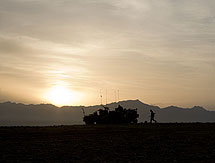 The tide of the war in Afghanistan is running against the United States and its allies, in contrast to an improving trend in Iraq, a U.S. military official and counter-insurgency expert said on Wednesday.
The tide of the war in Afghanistan is running against the United States and its allies, in contrast to an improving trend in Iraq, a U.S. military official and counter-insurgency expert said on Wednesday.
"Afghanistan (is) in my eyes an under-resourced war, a war that needs a whole lot more advisers, a whole lot more economic aid," Lieutenant Colonel John Nagl told a security conference in Stockholm.
"This war is the war I'm concerned about, a war in which the United States very much needs the help of our friends."
Nagl commands the 1st battalion of the 34th armored regiment at Fort Riley, Kansas, training U.S. transition teams that embed with Iraqi and Afghan security forces.
He was part of the writing team that produced the U.S. military's manual on counter-insurgency, which is credited with transforming its approach to both conflicts with a new emphasis on winning over local populations and marginalizing insurgents.
UN Torture Envoy Says U.S. Denies Access to Iraq Jails
 Wednesday, March 12, 2008 at 02:34PM
Wednesday, March 12, 2008 at 02:34PM The U.N. investigator on torture said on Tuesday the United States had denied his request to visit U.S.-run jails in Iraq and insisted a visit could help clear its legacy of the prison abuse scandal in Abu Ghraib.
Manfred Nowak, United Nations special rapporteur on torture, said he had received credible information the situation had improved at U.S. detention facilities in recent years, but stressed only a visit would allow him to verify them.
An international outcry erupted in 2004 after images of prisoner abuse by U.S. military personnel at Abu Ghraib west of Baghdad, including naked detainees stacked in a pyramid and others cowering before snarling dogs, became public.
"I was a little astonished that the U.S. government is not willing to grant me access because it might perhaps even be in their own interest if I compared different detention facilities," Nowak told a news briefing in Geneva.
"It might also be in their interest in overcoming the legacy of having been criticised so much for torture practices in Abu Ghraib and other detention facilities up to 2004," he added.
Another New GAO Study Says Bush Follows Through on Signing-Statement Announcements of Intent to Violate Law
 Wednesday, March 12, 2008 at 02:16PM
Wednesday, March 12, 2008 at 02:16PM One of the most underexplored aspects of Bush's unprecedented use of signing statements has been the practical consequences.
A year ago, the Government Accountability Office found that, indeed, federal officials had not complied with at least some of the provisions that Bush objected to in signing statements.
In testimony to a House committee yesterday, GAO general counsel Gary L. Kepplinger announced the results of another study, this one of provisions in the 2008 defense authorization, which found more of the same. The GAO examined how 21 agencies executed 29 different provisions of the law that Bush asserted his right not to follow -- and found that in nine cases "the agencies had not executed the provisions as written."
As with the earlier study, the specific examples are less than compelling -- the investigation, for instance, avoided "a close examination of provisions involving national security, intelligence, or foreign relations matters, because of our limited access to such information and the time constraints on our work."
6 Signs the U.S. May Be Headed for War in Iran
 Wednesday, March 12, 2008 at 11:54AM
Wednesday, March 12, 2008 at 11:54AM  Is the United States moving toward military action with Iran?
Is the United States moving toward military action with Iran?
The resignation of the top U.S. military commander for the Middle East is setting off alarms that the Bush administration is intent on using military force to stop Iran's moves toward gaining nuclear weapons. In announcing his sudden resignation today following a report on his views in Esquire, Adm. William Fallon didn't directly deny that he differs with President Bush over at least some aspects of the president's policy on Iran. For his part, Defense Secretary Robert Gates said it is "ridiculous" to think that the departure of Fallon -- whose Central Command has been working on contingency plans for strikes on Iran as well as overseeing Iraq -- signals that the United States is planning to go to war with Iran.
Fallon's resignation, ending a 41-year Navy career, has reignited the buzz of speculation over what the Bush administration intends to do given that its troubled, sluggish diplomatic effort has failed to slow Iran's nuclear advances. Those activities include the advancing process of uranium enrichment, a key step to producing the material necessary to fuel a bomb, though the Iranians assert the work is to produce nuclear fuel for civilian power reactors, not weapons.
Dollar Falls to Record Low on Concern Fed Package Won't Succeed
 Wednesday, March 12, 2008 at 11:21AM
Wednesday, March 12, 2008 at 11:21AM By Ye Xie and Gavin Finch / Bloomberg
 The dollar fell to a record below $1.55 per euro on concern that the Federal Reserve's plan to provide funds to banks won't be enough to break the gridlock in money-market lending and stem credit losses.
The dollar fell to a record below $1.55 per euro on concern that the Federal Reserve's plan to provide funds to banks won't be enough to break the gridlock in money-market lending and stem credit losses.
The U.S. currency erased more than half of yesterday's 1.6 percent rally versus the yen, the biggest in six months, which came after the Fed said it would extend $200 billion of credit to financial institutions to spur lending. Traders bet the Fed will cut rates by as much as three quarters of a percentage point next week to avert a recession, while the European Central Bank keeps borrowing costs unchanged.
``It's difficult for the dollar to gain traction,'' said Paresh Upadhyaya, who helps manage $50 billion in currency assets at Putnam Investments in Boston. ``The Fed is probably running out of options; the market is fixated on interest-rate differentials, which are clearly negative for the dollar.''
Plan To Spray Toxic Biological Chemicals Over San Francisco Announced!!!
 Tuesday, March 11, 2008 at 05:55PM
Tuesday, March 11, 2008 at 05:55PM  The U.S. Government is planning to poison more than two million people, in California, using an untested biological "pesticide" this summer. The chemical to be sprayed is classified by the EPA as a "pesticide" and the plan is to douse cities with this chemical designed to stick on everything for 90 days or longer. This application is not a one time event, but will continue every 1-3 months for as long as five years.
The U.S. Government is planning to poison more than two million people, in California, using an untested biological "pesticide" this summer. The chemical to be sprayed is classified by the EPA as a "pesticide" and the plan is to douse cities with this chemical designed to stick on everything for 90 days or longer. This application is not a one time event, but will continue every 1-3 months for as long as five years.
The pesticide to be sprayed is not designed to harm the light brown apple moth's who it is designed for, but merely to confuse its mating habits. While harmless to moths, the pesticide has been documented to harm humans. Side effects range from vomiting and flu like systems, to male and female reproductive cycle disruption. One child nearly died from the exposure, and some people have developed asthma from being exposed to this chemical concoction.
It is cause for alarm that a chemical being labeled as harmless and "safe" even in minute doses, causes severe health effects in some people. The government is racing to cover up and hide the dangerous health effects, so that they can continue their aerial spray plans this summer.
Bush Doublespeak at NRB Laughable
 Tuesday, March 11, 2008 at 04:13PM
Tuesday, March 11, 2008 at 04:13PM  US President George W. Bush on Tuesday promised cheering supporters that he would not risk "reversible" gains in Iraq with a troop withdrawal plan tied to the November US elections.
US President George W. Bush on Tuesday promised cheering supporters that he would not risk "reversible" gains in Iraq with a troop withdrawal plan tied to the November US elections.
"I want to assure you -- just like I assure military families and the troops -- the politics of 2008 is not going to enter into my calculation, it is the peace of years to come that will enter into my calculation," he pledged to a Christian broadcasters association.
Bush made no mention of just-begun talks in Baghdad aimed at forging a long-term security partnership deal between the United States and Iraq by July, well before the US president's term ends in January 2009.
The president's Democratic foes have denounced the potential pact as an effort to tie his successor's hands. The White House and Iraqi officials say it is necessary because the UN mandate for the US presence expires at year's end.
Bush, his approval ratings slumped at near-record lows, pointed to US troop draw-downs scheduled to occur by July and denied that political pressure was playing any role in US force levels in war-torn Iraq.
Auditors: Iraq Faces Budget Surplus While U.S. Foots the Bill
 Tuesday, March 11, 2008 at 03:38PM
Tuesday, March 11, 2008 at 03:38PM  Iraq isn't spending much of its own money, despite soaring oil revenues that are pushing the country toward a massive budget surplus, auditors told Congress on Tuesday.
Iraq isn't spending much of its own money, despite soaring oil revenues that are pushing the country toward a massive budget surplus, auditors told Congress on Tuesday.
The expected surplus comes as the U.S. continues to invest billions of dollars in rebuilding Iraq and faces a financial squeeze domestically because of record oil prices.
"The Iraqis have a budget surplus," said U.S. Comptroller General David Walker. "We have a huge budget deficit. . . . One of the questions is who should be paying."
Walker and the other auditors did not give a figure as to the likely surplus. U.S. officials contend that Iraq's lack of spending is due primarily to Baghdad's inability to determine where its money is needed most and how to allocate it efficiently. Two senators have called for an investigation into the matter.
Democrats say the assessment is proof that the Iraq war as a waste of time and money. The U.S. has spent more than $45 billion on rebuilding Iraq.
Report: NSA's Warrantless Spying Resurrects Banned 'Total Information Awareness' Project
 Tuesday, March 11, 2008 at 03:21PM
Tuesday, March 11, 2008 at 03:21PM  Total Information Awareness -- the all-seeing terrorist spotting algorithm-meets-the-mother-of-all-databases that was ostensibly de-funded by Congress in 2003, never actually died, and was largely rebuilt in secret by the NSA, according to the Wall Street Journal's Siobhan Gorman.
Total Information Awareness -- the all-seeing terrorist spotting algorithm-meets-the-mother-of-all-databases that was ostensibly de-funded by Congress in 2003, never actually died, and was largely rebuilt in secret by the NSA, according to the Wall Street Journal's Siobhan Gorman.
In a fantastic story Monday, Gorman pulls together threads and lays out what many have suspected and alleged in lawsuits -- the NSA is collecting and sifting through immense amounts of data about who Americans talk to, what they are interested in, how they spend their money and where they travel in order to find secret terrorism cells inside America.
The NSA is engaged in a widespread mining of so-called transactional data -- domestic telephone records, credit card purchases, travel data, international financial data, internet searches, subject lines and headers of emails -- pulling in immense data about Americans and foreigners, which it then uses to find particular targets -- or even, according to Gorman -- to decide what cities to target for blanket surveillance.
Two former officials familiar with the data-sifting efforts said they work by starting with some sort of lead, like a phone number or Internet address.






















